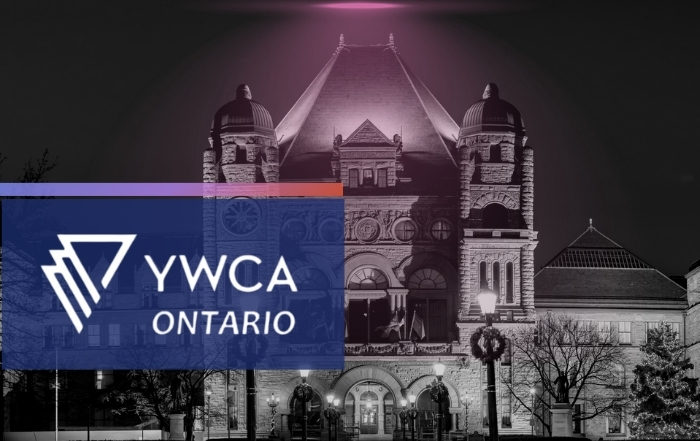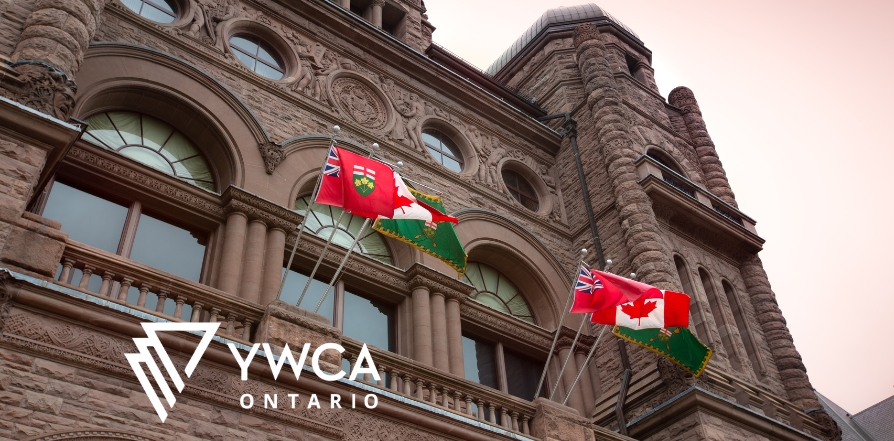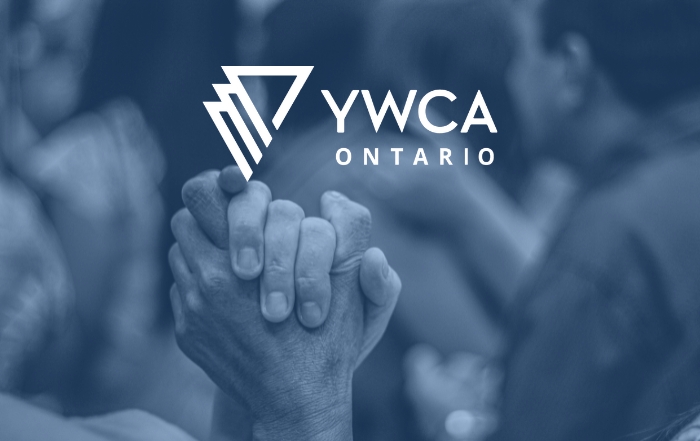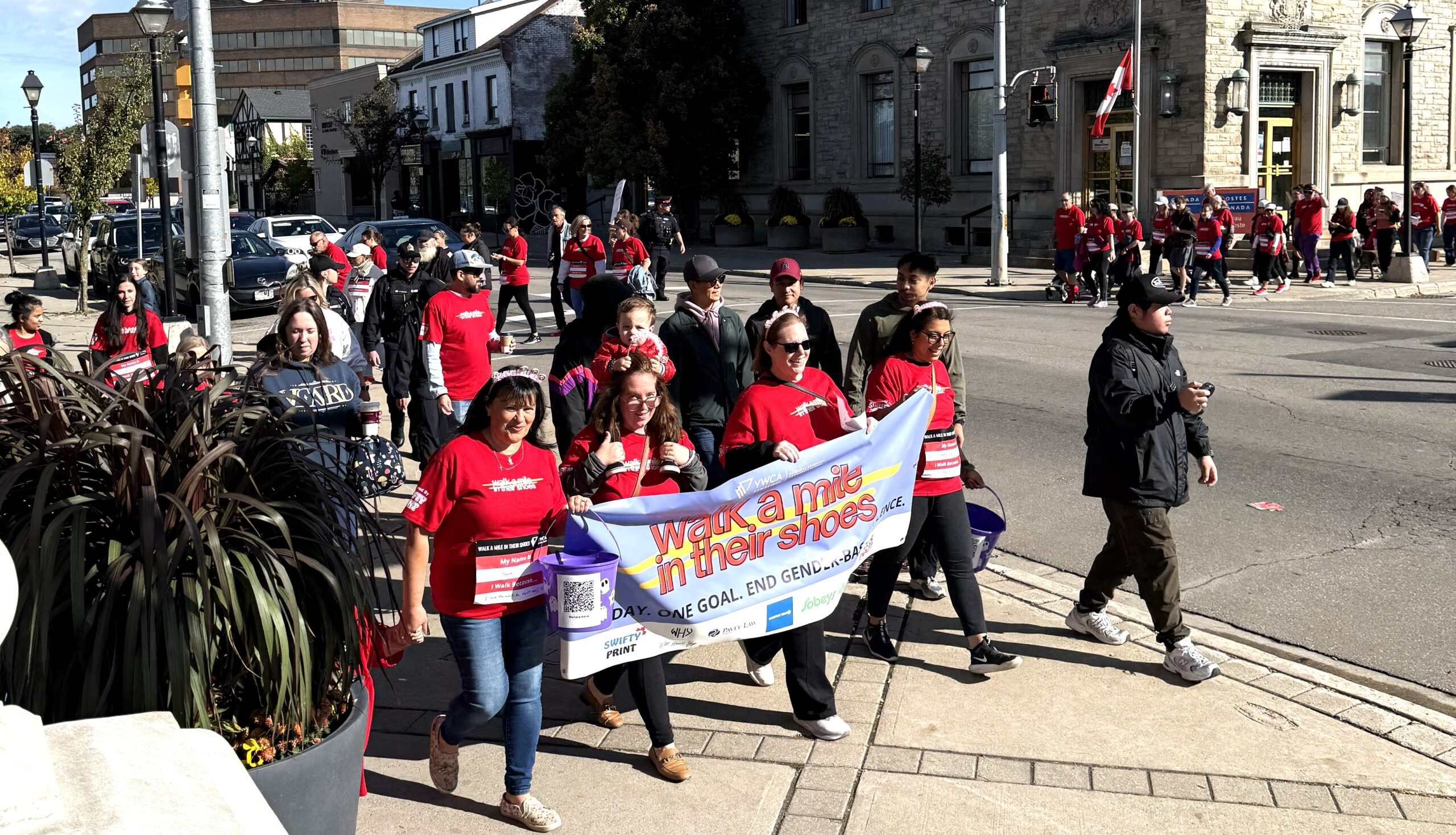The following is a transcript of a delegation delivered by YWCA Cambridge Director of Communications and Advocacy, Roz Gunn, at the September 23 Cambridge Council meeting. Roz spoke in favour of motion 10.2 re: Preventing the forced removal of unhoused persons during extreme weather events. The motion failed 6-3. To watch the recording of the full meeting, click here.
Good evening, Mayor and members of Council. Thank you for the opportunity to speak today. My name is Roz Gunn, and I’m the Director of Communications and Advocacy at YWCA Cambridge, a multi-service agency that has served women, girls, gender-diverse individuals and their families in Cambridge and North Dumfries communities for over 75 years, including through operating Cambridge’s first and only shelter for unhoused women.
I am here to express my strong support for the motion directing staff to report back on a policy to prevent the forced removal of unhoused persons from encampments during extreme weather events. This motion is a crucial and reasonable step towards a more humane, compassionate, and legally responsible approach to the homelessness crisis facing our community.
As the motion rightly states, the housing and homelessness crisis is a systemic issue affecting all of Canada. Municipalities like Cambridge don’t have the full financial and jurisdictional powers to solve this crisis on their own, but we do have a fundamental responsibility to act in a manner that upholds the human dignity and rights of every resident. This motion is a clear and actionable example of fulfilling that responsibility.
I want to address some common misconceptions that are swirling around in the discourse on homeless encampments.
First, preventing encampment removals during extreme weather is “enabling” homelessness or making the problem worse.
This couldn’t be further from the truth. What is enabling homelessness to grow is the affordability crisis and the severe lack of accessible and attainable housing options. According to the most recent Point In Time count, there are nearly 2,400 individuals experiencing homelessness across the Region, and about 1,000 of them are unsheltered. Meanwhile, the Region’s shelter system has a capacity of just over 400 beds – only 20 of those are dedicated to women in Cambridge. 20. We are constantly at full capacity in our shelter and constantly turning women away – there is nowhere else for them to go in this city. This glaring gap makes it clear that we don’t have enough shelter space to meet the current need, let alone to house everyone living in encampments. Additionally, most available shelter beds aren’t designed to accommodate couples, families with older children, or those with pets. A shelter system at capacity means that even if individuals wanted to be housed, there often isn’t a bed for them.
This brings me to my next point. I want to state one thing clearly: the individuals we are talking about are our neighbours. They are not strangers being bused in from neighbouring communities and dropped at our doorstep. These are residents of our community who have fallen on hard times. We have a shared responsibility to treat them with dignity and respect.
Now the second misconception: encampments are primarily driven by uncontrolled drug addiction and are a sign of lawlessness.
While substance use is a complex factor, it’s not the primary cause of homelessness and it does not accompany every individual’s experience of homelessness. The most significant drivers are economic factors and a lack of affordable housing. Many residents in encampments are there because they have nowhere else to go and being with others is much safer than being alone.
Courts across the country, as well as the United Nations and our own Federal government with the 2019 National Housing Strategy Act, have declared housing to be a human right. This isn’t a matter of charity; it’s about basic rights.
Under the Act, all Canadians have a right to housing that is adequate, affordable, and secure – that is, more than basic shelter. This legal and ethical consensus requires us, as a municipality, to respond to those without housing in a way that prioritizes and respects these fundamental human rights. Forced encampment removals, particularly during periods of extreme danger, are in direct conflict with this obligation and may be deemed unconstitutional – there is certainly a precedent for this with Justice Valente’s 2023 decision regarding the 100 Vic encampment.
For our unhoused neighbours, a weather warning is not a mere inconvenience; it is a direct threat to their survival. Forcibly removing individuals during such an event may dispossess them of the few belongings they have to manage and mitigate the weather, such as blankets, tents, and warm clothing. It also pulls them from familiar spaces of refuge and, critically, severs their connections to established networks of support and outreach services that are vital to their health and safety.
For outreach workers to actually do their jobs effectively, service providers need to be kept informed and be partners in any plan aimed at addressing the homelessness crisis. YWCA Cambridge has previously requested that, should the city plan to evict an encampment, organizations like ours are informed in advance so that we can ensure individuals don’t lose connection to vital services. We’ve not yet received any response to this request, but please consider this to be us reiterating this request here today.
By passing this motion, Council will be taking a proactive and responsible step to mitigate these immediate and life-threatening risks. The direction to report back on a policy of prevention during extreme weather is a prudent measure that allows us to develop a thoughtful, evidence-based solution in collaboration with the Region of Waterloo, the Waterloo Regional Police Service, and our key outreach and community partners.
I urge you to support this motion and signal to our most vulnerable residents that their human rights and safety matter to this Council. Thank you.










